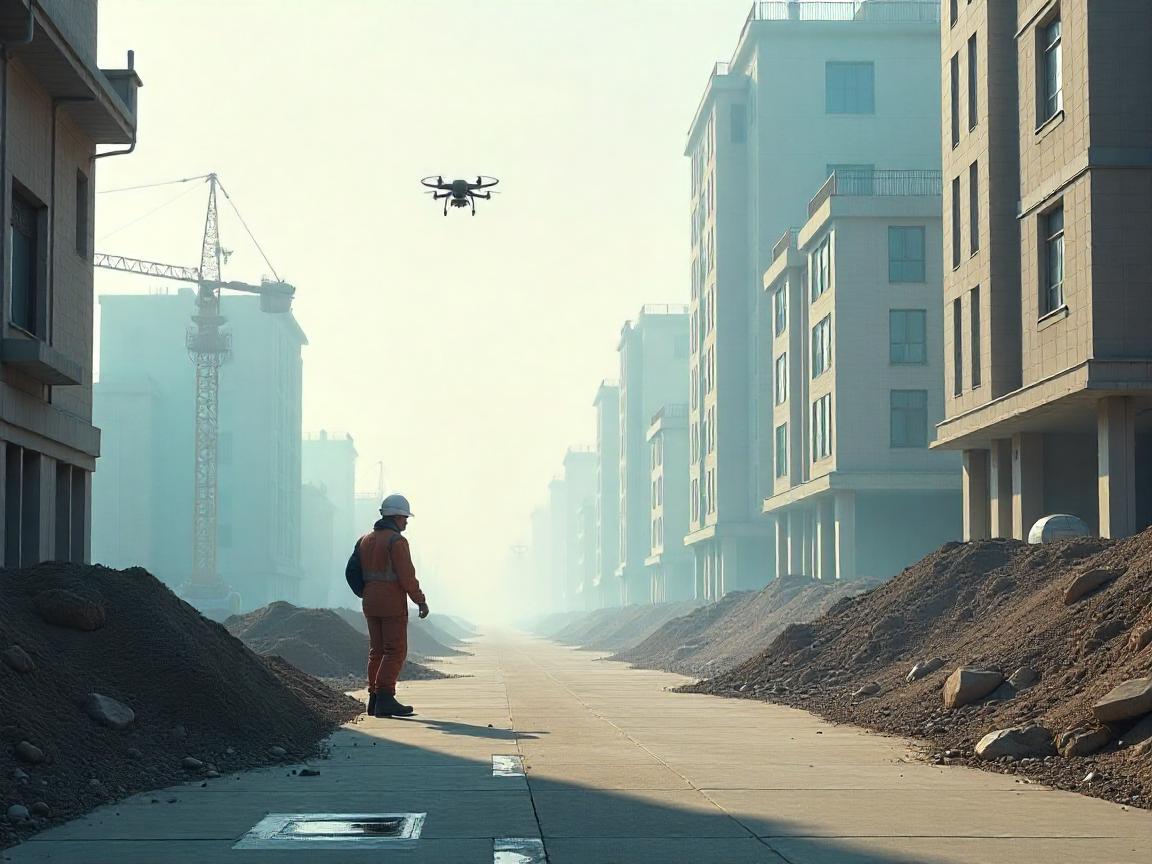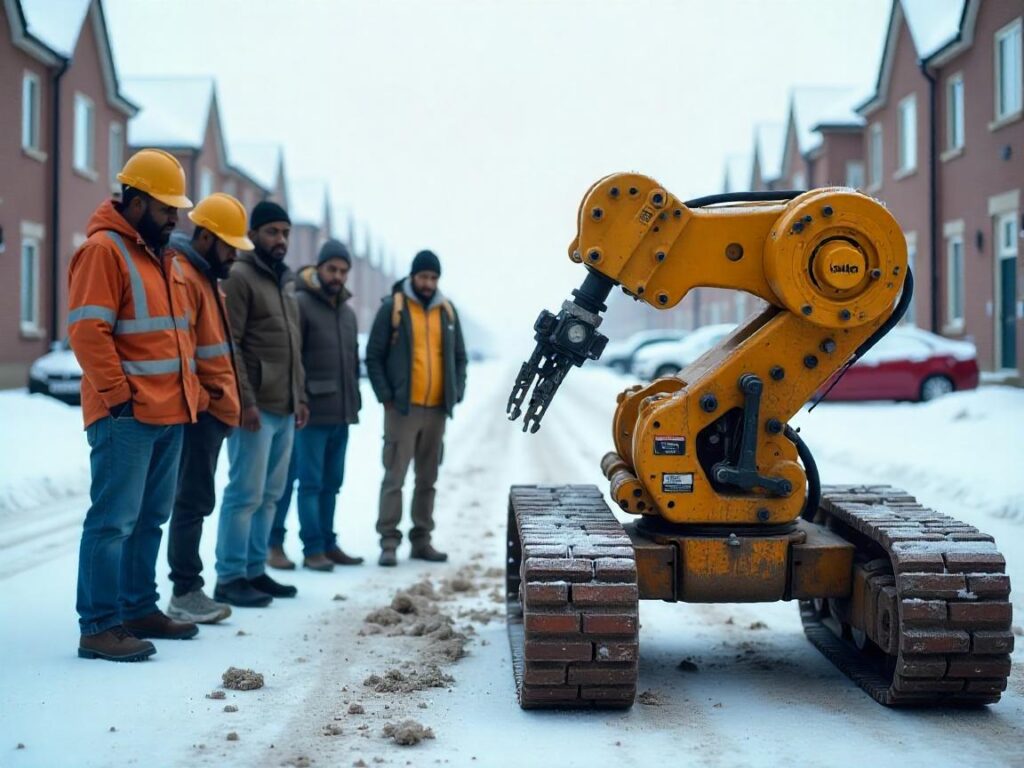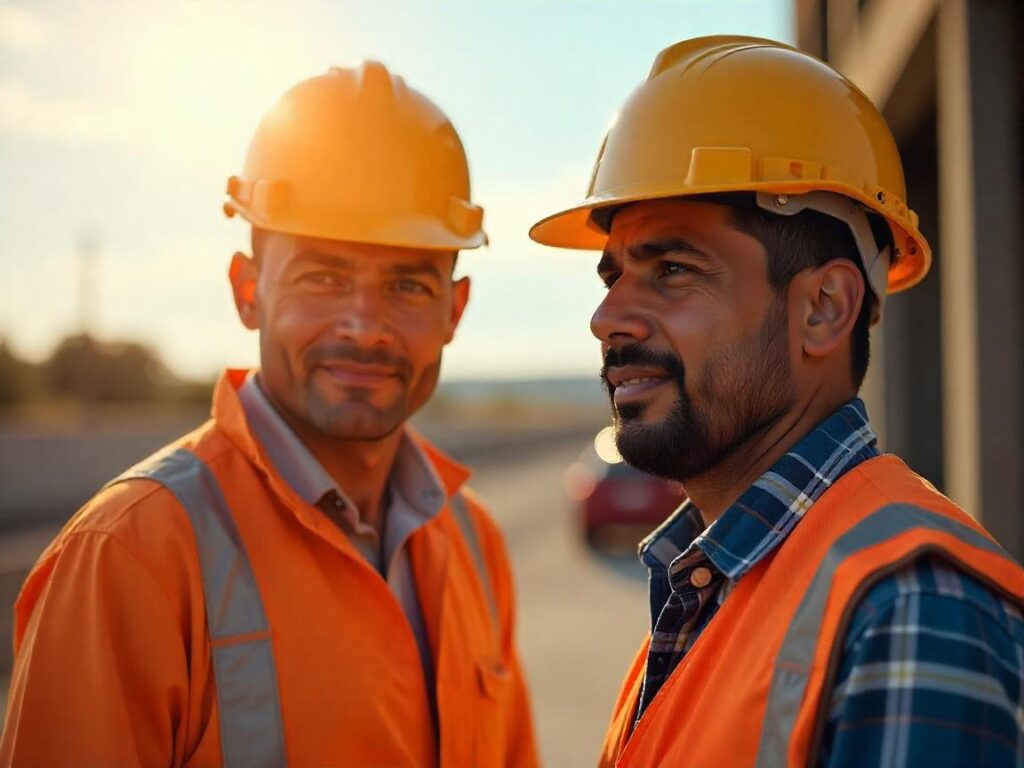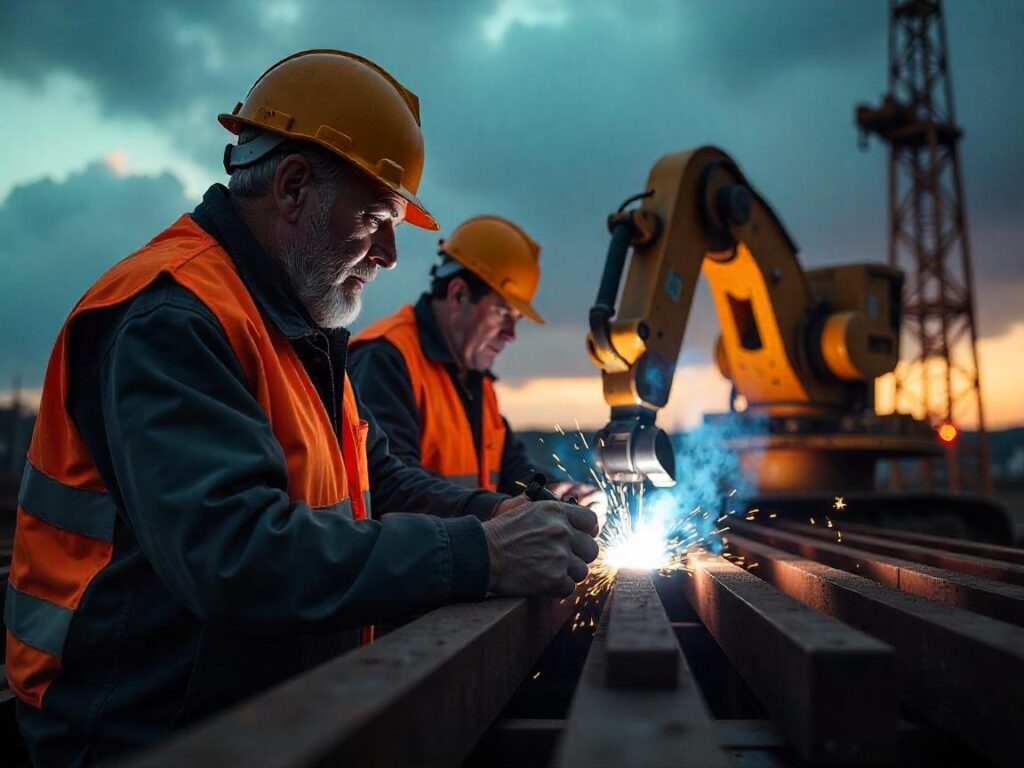
AI is making a stronger presence in construction.
AI and robotics in construction are leading to real ethical implications that are easy to spot and growing very fast. On a recent job site, you could see machines using AI to lay bricks and drones carrying out safety checks. While people are talking about efficiency and new ideas, a different discussion is going on: who are the ones being left out, and for what reason?
In 2025, more than 50% of major firms have started using automation technologies, stated a Deloitte Construction Tech Report. However, the strong increase in productivity comes at the cost of more people being replaced by robots, privacy being invasively compromised, and AI making decisions that have no accountability.
Job Loss in Construction: Who’s Getting Replaced?
AI and robots in construction highlight their ethical issues more clearly when they take over the work of skilled workers. In Japan, Kajima Corporation has switched traditional teams out for robotic technology that handles concrete and rebar work. In the U.S., the use of automated drywall installers has decreased the number of people needed for the task by 70%.
“It’s important to use technology, but never let workers be forgotten,” Ana Delgado, leader of the North America Construction Workers Union, says.
According to the World Economic Forum, by 2030, about 2.3 million construction-related jobs will be lost to automation. Instead of asking if jobs will disappear, we should focus on what help we can give those who lose out.

Surveillance or Safety? The Privacy Risks of Smart Sites
AI wearables, helmet cameras, and vests that follow employees’ locations are examples of today’s construction tech being used to decrease accidents and make things more efficient. In places where AI is used, Autodesk’s Construction Cloud notes a 30% decrease in the occurrence of incidents.
Yet, they track and collect data that is very private about people. different things like movement, cycles of rest, even emotions can impact your energy levels. Later in 2024, a worker in the UK was let go just because an AI system found their performance unsatisfactory, and this was not reviewed by anyone from the company.
According to Rohan Chatterjee, from DataEthics.io, there is a trend to rely on surveillance for ensuring workplace safety.
The use of safety tools for constant monitoring may damage the trust and dignity of employees at the worksite.

What Happens When AI’s Predictions Go Wrong: Who’s Responsible?
AI isn’t infallible. An AI tool used in a modular housing project in Texas ended up recommending materials that couldn’t survive the humidity in Texas, leading to large problems. No engineer noticed it because they placed full trust in the system’s way of working.
Stanford’s Professor Leah Ramesh notes that, “AI is not judged by moral values.” Humans do.” Because AI is being used more, it is important to have clear laws about who is responsible when AI causes problems in critical infrastructure projects.
Although explaining and monitoring algorithms is now required by the 2025. AI Act in construction tech across the EU, similar rules have not yet been implemented in the United States.
Building Bias: Is Everyone Being Taken Into Consideration When We Develop AI?
Bias in design is an ethical aspect of AI and robotics use in construction that often goes unrecognized. Through the use of Eurocentric data, AI-based architectural tools could ignore considerations related to accessibility or culture.
In Ghana, a project using generative design left out both disability access and shaded meeting points, two features important in the region. If AI models do not understand different needs of people, then design features can exclude vulnerable populations.

Final Thoughts: We want to Focus on Ethics As Well As Coding
Over a decade of working on civil projects, I’ve noticed how automation positively impacts people’s lives. Some transitions bring excitement, while others are very upsetting. Dealing with the ethics of AI and robotics in construction requires genuine action, not just upgrading software or corporate policies.
To have smart buildings, we have to start with smarter values. In addition to robots, we should also leave room for respect, fairness, and responsibility in the world we are shaping.